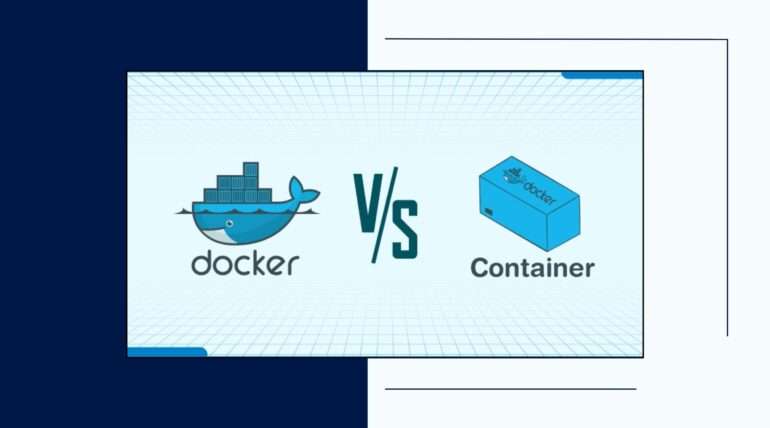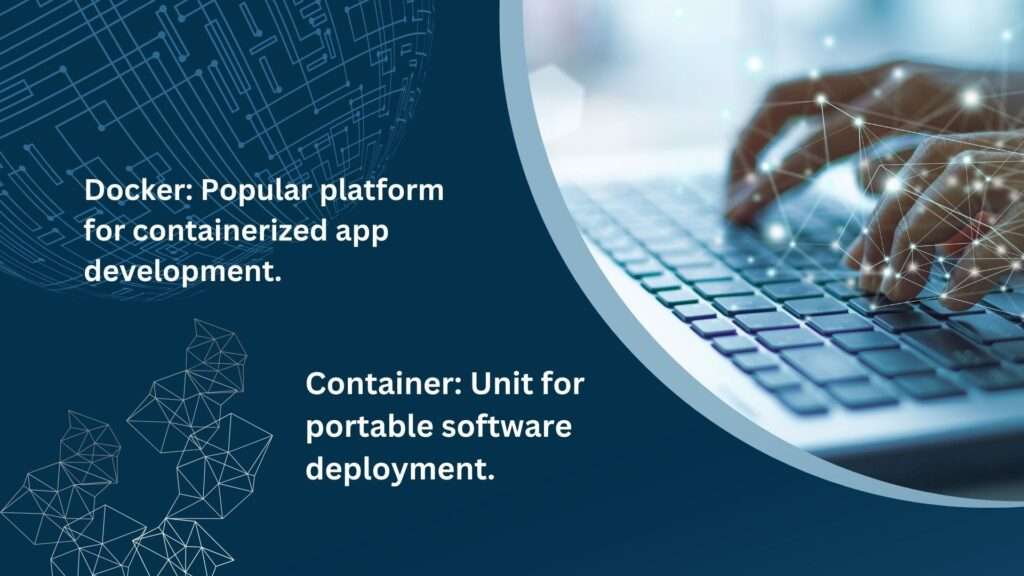
Docker is a popular open-source platform for developing and running containerized applications. It provides a set of tools and services that make it easy to build, share, and deploy containers.

Here’s an analogy to understand containerization: Imagine you’re moving to a new apartment. Instead of packing everything in one big box, you pack your belongings in smaller, labeled boxes (containers) for each room or category. This makes it easier to unpack and organize your things in the new apartment.
Similarly, containerization packages an application with its specific requirements (libraries, dependencies, etc.) into a self-contained unit that can be easily deployed and run on any system with the Docker runtime installed. This eliminates the need to worry about compatibility issues or conflicting software on the host machine.
The world of software development has seen a massive shift towards containerization, with Docker leading the charge.
Before containerization, virtual machines (VMs) reigned supreme. VMs virtualize the entire hardware layer, allowing multiple operating systems to run on a single physical machine. However, VMs are bulky and resource-intensive, taking a long time to boot and requiring significant overhead.
Docker burst onto the scene, introducing a new paradigm: containerization. Instead of virtualizing the entire hardware, Docker containers share the host OS kernel, only isolating the application and its dependencies. This makes containers significantly lighter and faster, booting up in milliseconds compared to VMs’ minutes.
Docker and containerization have transformed the software development landscape. By enabling lightweight, portable, and scalable deployments, containerization empowers developers to build and deliver modern applications with unprecedented agility and efficiency. As the ecosystem continues to evolve, the future of containerization promises even more exciting possibilities for building and running software in the years to come.
The most common and impactful applications of Docker and containerization, accompanied by

1. Microservices Architecture:
- Containers provide a perfect environment for isolating and managing microservices, enabling independent development, deployment, and scaling of each service.
2. Continuous Integration and Continuous Delivery (CI/CD):
- Containers streamline CI/CD pipelines by ensuring consistent environments for building, testing, and deploying applications across different stages.
3. Cloud-Native Development:
- Containers are essential for cloud-native applications, allowing for efficient packaging, deployment, and scaling of applications in cloud environments.
4. Development Environments:
- Developers can create consistent and isolated development environments using containers, eliminating conflicts between different project dependencies and configurations.
5. Serverless Computing:
- Containers are often used to package and deploy serverless functions, enabling event-driven, scalable, and cost-effective application architectures.
6. Edge Computing:
- Containers can be deployed at the edge of networks for low-latency, distributed computing, enabling applications like IoT and real-time analytics.
The rapid adoption of Docker and containerization has created a booming job market for skilled professionals.

- Docker Engineer/Specialist: Responsible for building, deploying, and managing containerized applications using Docker and related tools.
- DevOps Engineer: Utilizes containerization principles and tools to automate software delivery pipelines and manage infrastructure.
- Cloud Engineer: Leverages containerization for cloud-native applications on platforms like AWS, Azure, and GCP.
- Software Developer: Incorporates containerization best practices into software development, particularly in microservices architectures.
The containerization market is expected to reach $8.81 billion by 2025, indicating sustained demand for skilled professionals.
As the technology evolves, the need for specialists with expertise in Kubernetes, security, and cloud-native deployments will rise.
The future of Docker and containerization is bright, offering exciting career opportunities for individuals with the right skills and passion. If you’re interested in a dynamic and evolving field, exploring the world of containerization is a wise investment in your future.






